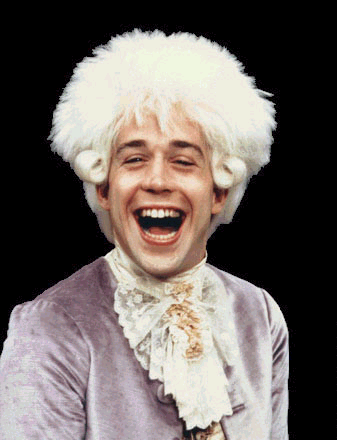Mozart to McQueen: the nature of creative genius – Immy Kerr
Is the notion of creativity one which can be defined? Does it relate to intelligence or are the two independent? Why is it that creativity and psychosis often come hand in hand?
The nature and the making of a creative genius is a topic which has fascinated and enthralled scientists throughout history, and remains unanswerable to this day. The stereotypical image of a creative genius is a little eccentric to say the least: along with his renowned artwork, Van Gogh is well known for severing his own ear; or take Schumann, who suffered from debilitating and ultimately fatal manic-depression.
One of the most timeless musical geniuses is Mozart, widely recognized as the greatest composer in the history of western music. By the age of twelve he had written three operas; in total he composed over 600 works in his lifespan of only thirty five years. Whilst being remarkably talented, he was also well known for his crass humour and pranks, a trait which Milos Forman amplified in ‘Amadeus’, a lavish and powerful film about Mozart’s life and influences. The film engagingly portrays Mozart’s genius through the eyes of his rival, Salieri, who is poisoned by envy and poses as Mozart’s friend whilst plotting his death. It has gore, a pact with God, a masked stranger, a murder, and some of the best music ever written, thoroughly deserving its eight Oscars. However, many film critics share the opinion that it falsely depicts and vulgarises Mozart due to the character’s flippantly childish attitude and disturbingly dissipated pastimes. I have no doubt that the film by no means bears complete historical accuracy, but I feel that through the deliberate exaggeration of Mozart’s immaturity, Forman found a way of dramatizing that true geniuses rarely take themselves or their own work seriously, because it comes so naturally to them.

This offhand manner is not only a trait of Mozart’s but common to many ‘creative geniuses’, one of which is British fashion designer Alexander McQueen (another figure whom I very much admire). McQueen ironically told Vogue that his first couture collection with Givenchy was ‘crap’ – in actual fact each piece is worth around £20,000 and can reach £350,000 at auction: so, far from crap. He was a deeply unhappy man and was diagnosed with mixed anxiety and depressive disorder before committing suicide in 2010. Unlike Mozart, he had a very ordinary background being the sixth child to a taxi driver and science teacher, suggesting that being a creative genius isn’t necessarily genetic but rather down to circumstance and hard work, perhaps with an element of luck too. McQueen had a very stubborn streak, just as Mozart was believed to have had as well; for example, although based in Paris, McQueen refused to make any attempt to learn French but instead communicated with his Givenchy seamstresses in a series of grunts.
The core similarity shared by the two figures and, I’m sure, many other creative geniuses is the contrast between their phenomenal talent and their normality and human failings. In the case of Mozart, this shows itself through the sublimity of his music but vulgar immaturity of his letters. Through his film, Forman invites us to be complicit with Salieri as self-acknowledged mediocrity (Salieri even goes so far as to describe himself as ‘champion’ and ‘patron saint’ of mediocrities, a seemingly oxymoronic statement as by saying this he is exalting his own position), which perhaps helps us to appreciate Mozart’s ingenuity to an even further extent.

Geniuses may have an extreme talent, but this is almost compensated for by an extreme in a different, less appealing area, such as rudeness or personal destructiveness. Another example is Martin Luther King, who was one of the greatest non-violence leaders in world history but was a serial adulterer and even spent the last night of his life with a woman who was not his wife. Whilst they have such an aura of deity, we feel disappointment in the way geniuses often choose to live their lives, as they do not largely seem ‘morally worthy’ of their talent, reminding us that they are just as flawed and unpredictable as the rest of humanity.















1 comment